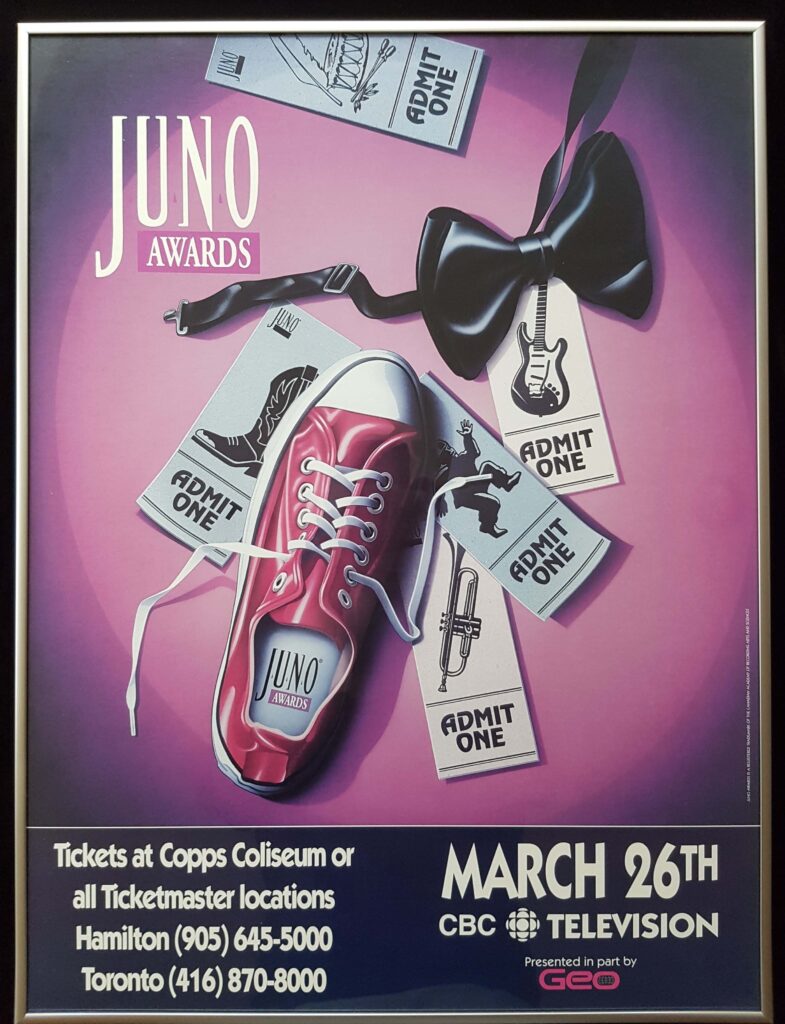In this season of awards – no wait! … awards always seem to be in season. Doesn’t having so many awards for so many different things dilute the value of any award?
We are just getting through Nobel Season. Soon it will be time for Oscars, Golden Globes, BAFTAs, Emmies, Grammies, Junos, ESPys and on and on and on.

All of these awards are won on the basis of somebody’s judgement, individual or committee. Anyone who has ever been on a committee knows that there is bound to be a lot of politics involved in choosing any award winner.
To get even more possible winners, the Oscars doubled their Best Movie list to allow more movies to claim “Oscar Nominated” to be able to sell more tickets. The Grammies and Junos added more categories.
We forget that most awards are for sales promotion purposes and are not given out of the goodness of the award show.
As mentioned in Overcome AD-versity, the credibility of a message is assigned by the audience based on factors that include expertise and trustworthiness. Winning or being nominated for awards is one way of establishing both expertise and trustworthiness.
Even if your movie only wins or is nominated for best wardrobe, special effects or music, the movie can be advertised with an Oscar mention.
Entertainment award shows draw significant audiences; they are doubling down on entertainment by using the top entertainment attractions to bring viewers’ interest. There is usually a sales bump for the winners, or even the nominees.
It is only in the sales promotion types of award shows where contestants campaign aggressively to win recognition. So, there isn’t as noble a halo around awards as one might think. One should never do the work on hopes of winning awards, but for the results that the work might bring.
Our long-time offices were previously occupied by a movie production company. Each spring we would receive tapes “For Your Consideration” of smaller movies looking for the production company to vote for them for an Oscar.
Advertising is also replete with award shows, locally and internationally. Many agencies develop work with an eye to winning awards. Creative teams love award shows because they can merchandise their wins into higher salaries, promotions and fees for their work. Similarly people in the movie business command more money if they have had an Oscar, BAFTA or Golden Globe nomination or win.
I always thought it would be a fun idea to have an Award for Awards show where Award shows were nominated to being the best Award show. But if Award shows are derivative of the real thing, such a show would be derivative of a derivative.
Our agency was somewhat antisocial in never entering an award show. We did have clients and suppliers who submitted our work for awards. Our feeling was that our priority should always be to put the clients’ interests first.

We didn’t even enter an award show with our advertising for the Juno Awards the first time it was open to the public. The advertising sold out the tickets for the event. I guess after that we could have claimed we worked with many award-winning musicians. Which we did anyways in advertising for other products like Molson, Wendy’s, Subway and General Mills.
Many media outlets are very willing to list the “10 Best” or even best of whatever. There is usually not much basis for these pronouncements; it is just someone’s opinion. Are they doing it to solicit ad dollars?
Michelin and other guides try very hard to provide a credible well researched assessment before handing out their stars. They are very guarded about who gets one or more and as a result a Michelin star brings a greater endorsement of quality than the local media’s assessment of which restaurants they rank.
There is a short story of a #NobelPrize Award in Overcome AD-versity that provides a lesson in strategy. Following that advice can lead to a Nobell prize.
A group of advertising agencies, years ago, got together annually to award each other prizes for whatever advertising they were proud of creating that year. Every agency came home with an award. Every agency was then able to claim “Award Winning Creative” in their new business pitches.
So yes, people even give awards to themselves. So, I would like to thank me for the Nobel Prize I recently received from myself. Let me pat myself on the back.
For a politician, winning a Nobel prize can pave the way to an election win. Good examples of politicians being endorsed by a Nobel Peace Prize are Lester Pearson, Menachim Begin, Barack Obama who won elections after winning, but not Jimmy Carter or Theodore Roosevelt who lost after winning or Anwar Sadat who was assassinated a couple years after getting the prize.
Politicians or other potential prize nominees don’t usually openly campaign for such a prize. It is considered beneath the dignity of the award. If you merit it, it will come – through endorsements by a very well defined list of nominees, including academics, international court members, and past winners. Claim what you want to claim Donald Trump, but Barack Obama would be among the Peace Prize nominators. Lots of luck, Donnie on getting Barack’s endorsement. My expectations are that campaigning will do more to harm your chances at winning than help even if it appeases your ego.
In answer to our opening question, award show proliferation means a diluting of the value of awards and a lessening of the credibility gained in winning one.